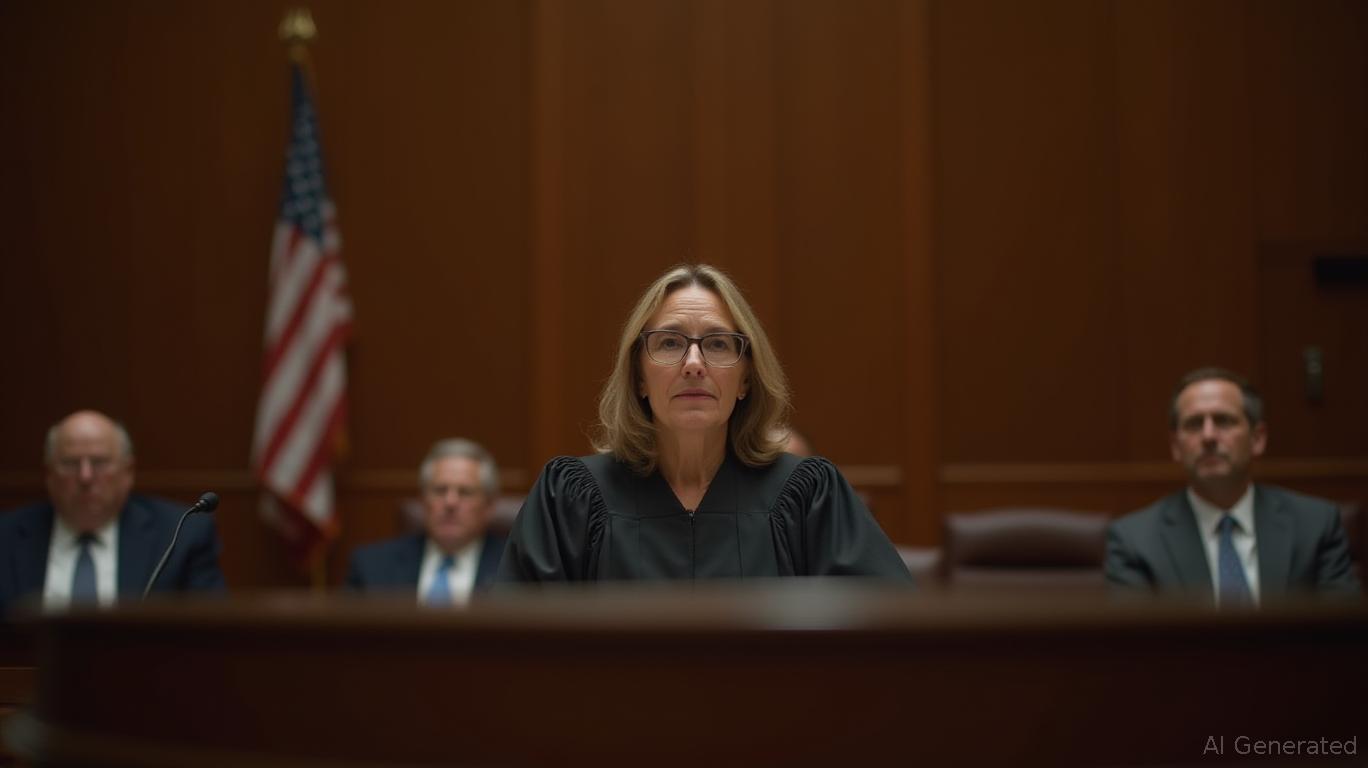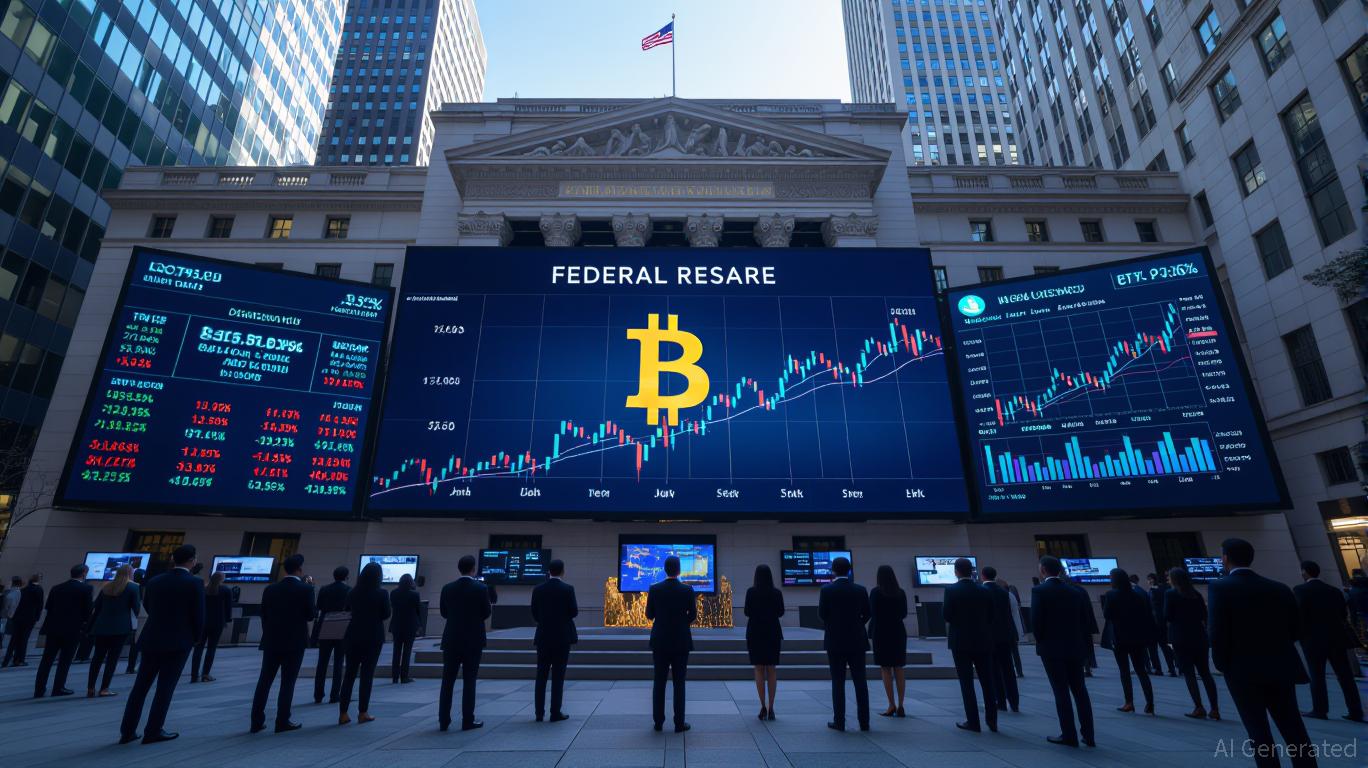Court Upholds Federal Authority to Exclude Crypto Banks Due to Systemic Risk
- U.S. appeals court upheld Fed's denial of Custodia Bank's master account request, citing systemic risk concerns over crypto exposure. - Court rejected Custodia's argument that Fed violated statutory access rules, affirming central bank's discretion to block high-risk institutions. - Judge Tymkovich dissented, asserting Fed's statutes mandate access for eligible banks regardless of asset focus. - Custodia may seek rehearing amid potential jurisdictional splits and hinted at leveraging future Fed leadershi
A federal appeals court has confirmed the Federal Reserve's authority to deny Custodia Bank a master account, strengthening the central bank's ability to turn down applications from crypto-oriented banks due to concerns about systemic risk, as reported by a

Custodia, a Wyoming-based special purpose depository institution (SPDI) established by ex-Wall Street executive Caitlin Long, maintained that the Fed's denial breached statutory requirements mandating payment services for all qualifying depository institutions. The bank's lawsuit, which began in 2022 over alleged delays in processing, later shifted focus to challenge the Fed's right to refuse the account altogether, as outlined in a
This decision is consistent with the Federal Reserve's position that Custodia's crypto-focused business model presents risks that do not align with "safe and sound banking practices." The Kansas City Fed, which reviewed the application, pointed to issues such as volatility, regulatory uncertainty, and the complexities of integrating digital assets, as mentioned in a
The ruling featured a strong dissent from Judge Timothy Tymkovich, appointed by George W. Bush, who argued that the Fed's statutes require access for qualifying institutions. "This case is framed in modern terms: cryptocurrency, digital assets, instant wire transfers, and master accounts," Tymkovich stated. "But the underlying issue is not new." His dissent focused on how the law should be interpreted, stressing that the Fed's discretion should not override explicit legislative mandates, as noted by
Custodia has suggested it may request a rehearing, referencing the dissent and a related Ninth Circuit decision that could result in conflicting rulings across jurisdictions. The bank also alluded to possible changes in Fed leadership, suggesting that new chairs under the Biden administration might be more open to crypto. Fed Governor Christopher Waller recently floated the idea of streamlined "skinny" master accounts for banks focused on innovation, indicating potential regulatory changes, according to Decrypt.
This outcome highlights the Fed's prudent stance toward integrating crypto into the banking system, even as the sector evolves. With no crypto banks having secured a master account despite meeting eligibility requirements, the decision points to ongoing concerns about systemic risk and regulatory certainty. Caitlin Long, Custodia's founder, described the dissent as "the next best thing" to a victory, suggesting further legal or policy developments could still occur, as reported by Cointelegraph.
Disclaimer: The content of this article solely reflects the author's opinion and does not represent the platform in any capacity. This article is not intended to serve as a reference for making investment decisions.
You may also like
ICP Value Jumps 30% Following Significant Network Update and Growing Interest from Institutions
- ICP's 30% price surge follows a November 2025 network upgrade introducing Caffeine, an AI tool for Web3 development, boosting on-chain AI integration. - Institutional adoption grows via partnerships like HashKey-Kraken, while ICP's DeFi TVL hit $237B, though DApp engagement fell 22.4% in Q3 2025. - Experts highlight Caffeine's accessibility benefits but caution over missing technical upgrades in scalability and storage, raising questions about long-term viability. - Competition from Ethereum and Solana ,

Is Wall Street starting to doubt the potential of AI?
Federal Reserve Strategies and Solana’s Price Rally: An Analysis of Macro Influences on Cryptocurrency Markets
- Fed's 2025 rate cut pause and dovish policy injected liquidity, boosting crypto demand including Solana (SOL). - Solana's 3,800+ TPS, $10.3B DeFi TVL, and institutional ETFs ($417M raised) highlight its technical and capital appeal. - Despite 20% price correction, Solana attracted $421M inflows in late 2025, showing institutional demand resilience. - Proposed Fed gold-for-bitcoin policy and Trump-era pro-growth signals amplify crypto's macroeconomic relevance.

Bitcoin’s Price Rally in November 2025: A Turning Point for Institutional Investors?
- Bitcoin's November 2025 surge to $145,000 sparks debate: institutional adoption or speculative frenzy masking structural fragility? - Macroeconomic stability and $72M+ infrastructure investments (e.g., Galaxy Digital in Canaan) signal maturing institutional strategies, contrasting ETF outflows and leveraged liquidations. - Regulatory clarity via U.S. spot Bitcoin ETFs (BlackRock, Fidelity) creates legitimacy but exposes crypto to traditional finance dynamics amid $1B+ ETF outflows. - Anchorage Digital's
